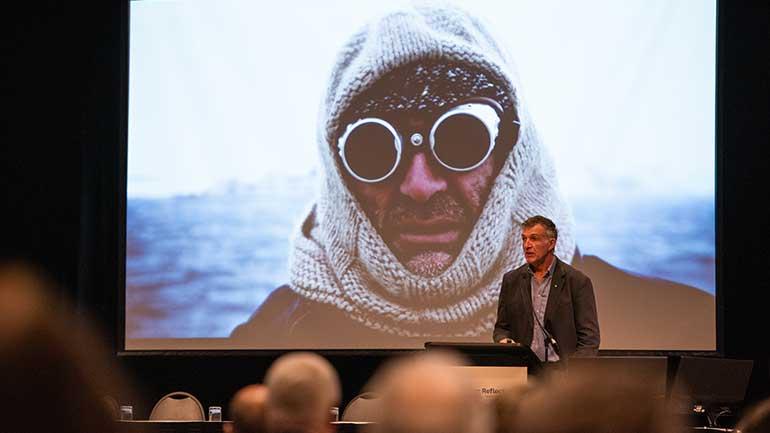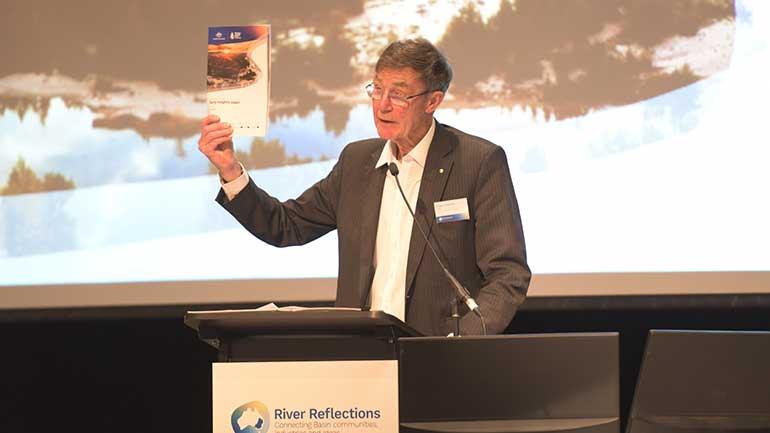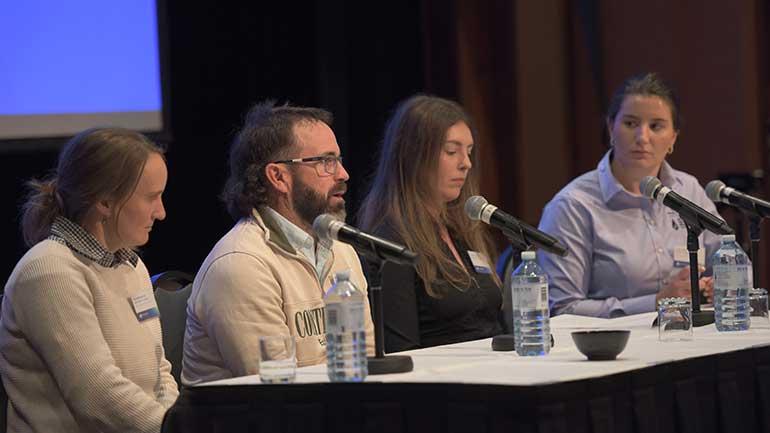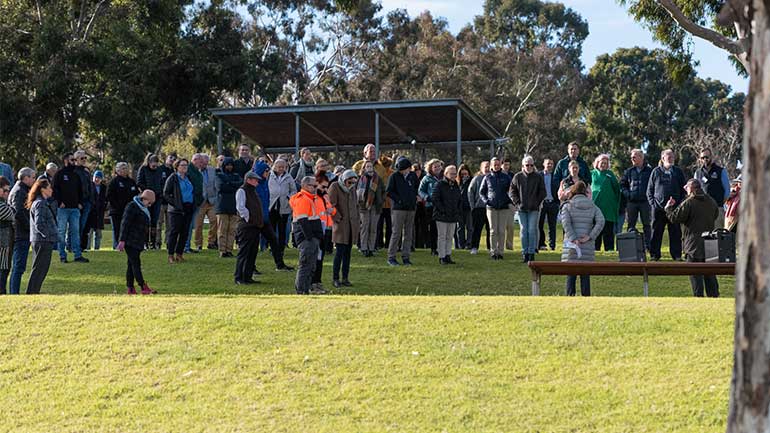It was an opportunity for the diverse communities and industries of the Basin to listen and learn from one another, to share what is known and explore the latest information to ensure rivers for generations.
This year’s conference theme looked at the art of the possible when tackling complex problems, and using the wisdom of the collective to shape a way forward together.
The conference began with a warm welcome to the region by Wiradjuri man Darren Wighton and AlburyCity Mayor Kylie King, before hearing from the keynote speaker, environmental scientist and adventurer Tim Jarvis.

Tim shared with the audience some of the adventures and challenges experienced across his 30-year career in the sustainability field, and reflected on his ongoing commitment to finding pragmatic solutions to major environmental issues related to climate change and biodiversity loss. Tim drew parallels between the grueling obstacles of Ernest Shackleton’s 1914 Antarctic expedition, and the challenges that Basin communities, businesses, and ecosystems will face as we continue responding to the constantly changing environment.
“Climate change is real, it’s coming, and we must approach it with pragmatic optimism. Together we can be a generation of people who solve this issue by working backwards from the outcomes we seek to achieve, and creating an environment where everyone feels their contribution is going to be recognised.
We must work as a collective to breakdown the challenges into small pieces, so we can manage our way through them. However, as part of that, we must also accept that there are certain things that we are never going to be able to manage.
– Tim Jarvis, Environmental scientist and adventurer
Looking forward to the 2026 Basin Plan Review
A key moment that set the tone for the remainder of the day was the unveiling of the 2026 Basin Plan Review – Early Insights Paper, presented by the Chair of the MDBA, Sir Angus Houston AK, AFC (Ret’d). The Early Insights Paper shares our current thinking on some of the Basin’s most complex challenges and covers what may be necessary to ensure the Basin Plan supports Basin water management to adapt to future conditions.

Continued discusions around the fast approaching 2026 Basin Plan Review were supported by:
- Rachel Connell, Department of Climate Change, Energy, Environment and Water (DCCEEW), who provided an update on Basin Plan Implementation and the Water Amendment (Restoring Our Rivers) Act 2023.
- Dennis Barnes, Snowy Hydro, who spoke about the 75-year history of the site’s hydroelectric power generation, and the important role it plays in the upper catchments of the Murray, Murrumbidgee, and Snowy Rivers.
- Simon Banks, Commonwealth Environmental Water Holder (CEWH) who presented on the CEWH’s role in managing water for the environment to protect and restore the rivers and wetlands of the Basin. A key part of Simon’s presentation was the announcement of the next monitoring phase of the CEWH’s science program – Flow Monitoring, Evaluation and Research (Flow-MER), launching in July.
Healthy rivers for generations to come
Kicking off the second half of the day was Regional Engagement Officer Lucy Sevil, who welcomed the Basin’s next generation of leaders to discuss the challenges of managing water in farming and agriculture. We heard from:
- Harriet Brickhill – Senior Agricultural Advisor for Clean Coastal Catchments, North Coast Local Land Services. Harriet works with cucumber and berry growers in intensive protected cropping on their nutrient and sediment management, for improved production and water quality outcomes.
- Emma Lipscomb – Seventh generation farmer, grazier and manager of her family property in Currawang, southwest of Goulburn, New South Wales.
- Brad Fischer – Third generation dairy, beef and cropping farmer in Meningie, South Australia.

Culture and continued collaboration
Wrapping up the afternoon session was Wiradjuri man Darren Wighton, who took the audience on a journey through First Nations’ connection to land, rivers and Country. He highlighted the Cultural significance of the Albury Wodonga region, and reflected on the key principles that the Wiradjuri people have relied upon for millennia.
If you take care of the lands and rivers, the lands and rivers will take care of you. The connection and relationships we are building are the key to moving forward.
– Darren Wighton, Wiradjuri man
Day 2 of the conference provided opportunities for the audince to participate in a number of interactive sessions and share their thoughts and opinions on water management in the Basin.
Learning on the water
This year’s conference concluded with a tour of Hume Dam - the main supply storage and one of the two major headwater storages for the River Murray system. Attendees heard about the challenges of operating a huge piece of water infrastructure.


